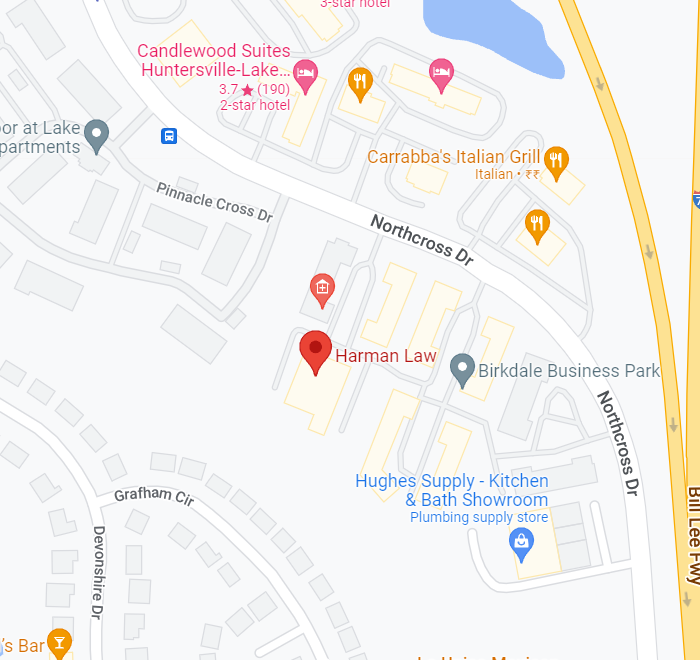There is a difference between workplace injury and occupational disease. The second one is not something that happens in unfortunate events, but rather a thing that develops over the years spent at your workplace. Read on to learn more about occupational illness and workers’ compensation in North Carolina.
Occupational Safety and Health Administration (OSHA) defines occupational illnesses as “any abnormal condition or disorder caused by exposure to factors associated with employment.” Just like occupational injury, eligible illnesses are those that are directly related to the circumstances on the job. Some professions carry obvious risks for occupational disease, so it is possible for any employee to get an illness due to work.
It is not uncommon for your job conditions to cause you an illness or to worsen your existing disease. What is important is that you can seek workers’ compensation claim. For more information, you should consult an experienced Huntersville worker’s compensation attorney.
What are the common occupational diseases?
There are many occupational diseases that can affect various parts of the body, such as bones, muscles, skin and lungs.
These are the most common examples of occupational diseases:
- Carpal tunnel syndrome
- Chronic obstructive pulmonary disease
- Contact dermatitis
- Bronchitis
- Asthma
- Cancer
- Asbestosis
- Lateral epicondylitis, also known as tennis elbow
- Hearing loss
- Hand-arm vibration syndrome
- Tendonitis
- Rabies
How can you prove an occupational illness?
When filing a workers’ compensation claim for your occupational illness, you will have to prove that you got the disease while working your current job.
The first criteria is the test where you must prove that the disease occurred because of hazards that existed in your workplace.
The second criteria is that the symptoms and disease are consistent with those that are known to result from a physical, chemical, or biological factor related to your job.
If you pass the two criteria, then you must prove, based on the evidence, that your condition was caused by your employment. This means your illness is connected to actions in the course of your work.
Occupational disease assumptions
Certain diseases can be caused by certain types of employment. The connection of your disease to your job will be questioned, unless you provide evidence that the disease is linked to your employment.
For example, firefighters have an occupational disease if they are diagnosed with cancer, leukemia, hypertension or heart disease.
It is easy to say that they got the occupational disease because of their job and the exposure to high risks such as fire, chemicals, and other hazardous materials that are known to cause the upper mentioned illnesses.
Are you at risk?
It is very important to understand that every job puts their employees at some risk. No matter how safe your job is (you could be an accountant who spends 8 hours a day working at the computer, you still are at risk of developing an occupational disease such as carpal tunnel syndrome).
However, development of chronic health disorders is often seen in the healthcare, construction, auto repair, manufacturing, and factory work industries.
Can occupational illness affect your workers compensation insurance?
If you claim that you have an occupational disease, then you must prove that it was caused by a hazard existing at your workplace. Also, the symptoms of your disease must be compatible with other documented cases of the illness. If you can prove that your illness happened because of your work activities or environment, then you will not have any problems filing for your workers’ compensation. Your policy will offer you the coverage for the needed medical treatment, provide you with a part of your lost wages, and discuss the cost of your recovery.
However, things might get complex if you cannot prove that your occupational disease happened because of your exposure to the hazard at your workplace.
Work-related illness claims may be challenging. Often, workers are trying to manage the symptoms of their disease. Operating the workers’ compensation system may seem like a lot of work. It is not uncommon for employers and their insurance companies to undermine your claim, blaming your physical condition on other sources. In such cases, it would be the best if you hire an experienced workers compensation attorney that would help you in the further process.
Dealing with the North Carolina Industrial Commission and your company’s workers’ compensation insurance might be a big challenge.
Our team at Harman Law is here to offer you the knowledge and experience you need. Our lawyers have worked on such cases and would gladly review your case.
Get started today with an intake form!


 CALL US NOW
CALL US NOW







